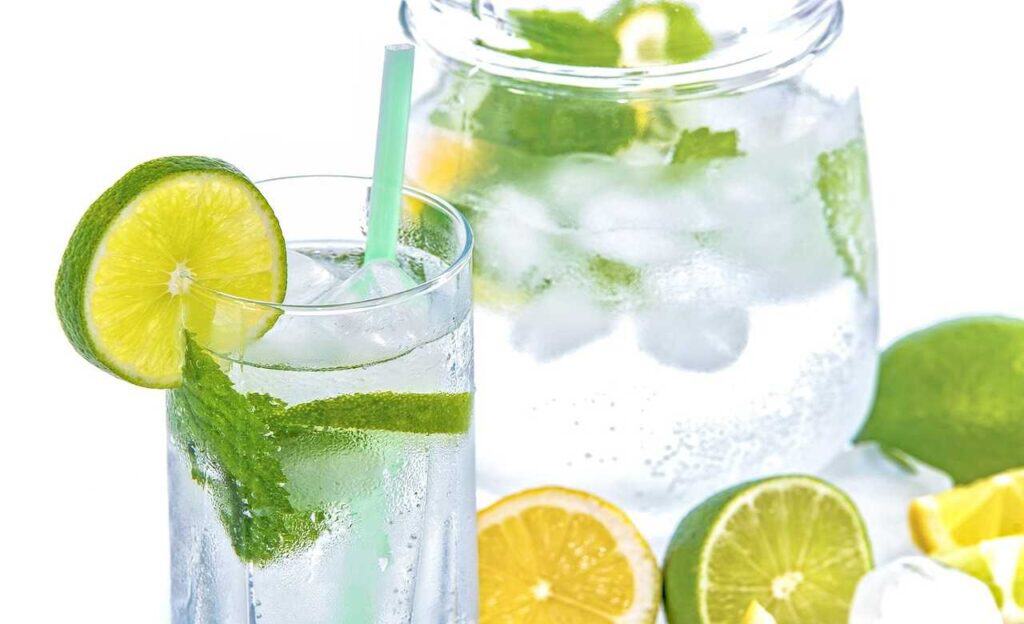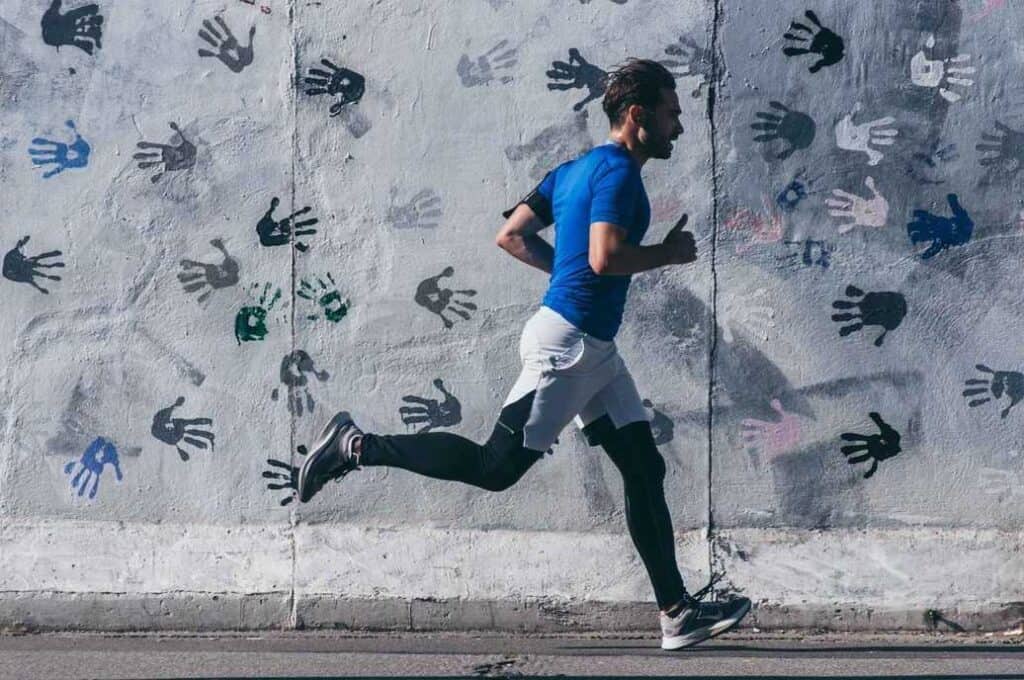What is Electrolyte Balance in Athletes? many Athletes are dedicated to their training, diet, and recovery. Sure, when you think about athletes, you consider hydration and carb loading but what about electrolyte balance in athletes? Hydration, muscle function and recovery would all be affected by your electrolytes. What are electrolytes, why do athletes need them, and how can one make sure that body is keeping the right Electrolyte Balance in Athletes.
What Are Electrolytes?
Electrolytes are minerals in your body that have an electric charge. Key Electrolytes Include:
- Sodium (Na+)
- Potassium (K+)
- Calcium (Ca2+)
- Magnesium (Mg2+)
- Chloride (Cl-)
- Bicarbonate (HCO3-)
Minerals that are vital for many functions of the body. Among other things, they help to control nerve and muscle function, hydrate the body, balance pH levels etc. Your body simply can not perform at it’s best when it is low or lacking electrolytes.
Electrolytes in Everyday Life
Up first — Electrolytes: They are not only critical for athletes, but more importantly they regulate normal functions of the human organism every day! However, electrolyte balance in athletes have an even more important function as they need to be rehydrated between greater sweating, effort and depletion after training and competition.
The Significance Of Electrolyte Balance in Athletes
When you exercise, particularly for at high intensities, your body sweats and loses electrolytes. If you are not replacing those minerals that are lost, then you put yourself in a dehydration risk with muscle cramps, fatigue and even the more serious of heatstroke.
Functions of Electrolytes in Athletic Performance
Muscle Contraction/Relaxation: Muscles require calcium, sodium, and potassium to contract and relax. Running a marathon without enough of this is the reason you cramp and your muscles fatigue early.
- Help in nerve signaling: Electrolytes carry the command from your brain to your muscle so that you make a move. If these signals are disrupted for instance, since of an imbalance, your coordination and reaction time lowers.
- Hydrating: Sodium and chloride work to store water your body, allowing you to stay hydrated during your workout session. Proper hydration helps to regulate the body temperature and enhance physical performance.
- pH Balance: Bicarbonate is an electrolyte that balances the pH of the body, which keeping it optimal can impact enzymes and affect our metabolism.
What are the results of an imbalance in electrolyte levels?
it is very important to maintain Electrolyte Balance in Athletes because Electrolyte imbalance can cause mild to severe symptoms or none at all. Some common symptoms of an electrolyte imbalance in athletes may include:
- Muscle cramps
- Fatigue or weakness
- Dizziness or confusion
- Rapid heartbeat
- Nausea or vomiting
What Causes Electrolyte Imbalance in Athletes
It is very important to maintain electrolyte balance in athletes because Imbalance in Electrolytes can create major problems. there are several circumstances that bring it on but these are the most typical reasons:
-
Excessive Sweating
Electrolytes, specifically sodium and potassium, are two of the most commonly lost electrolytes in the sweat of athletes. Some athletes can lose as much as 1,000 mg of sodium per hour during intense exercise. Here is why it is so important to restore lost electrolytes during and after workouts.
-
Dehydration
Dehydration happens when the body loses more fluid than it takes in and differentiated at least partially by electrolyte imbalances. Mild dehydration can be detrimental to physical performance.
-
Dietary Choices
An inappropriate electrolyte balance in athletes can also be caused by a malnutrition functioning diet. An inability to consume food or electrolyte (i.e. potassium) rich foods like bananas, spinach and sweet potatoes is frequently a significant contributor [e.g. low potassium levels (hypokalemia)].
-
Over-Hydration
It is super important to hydrate, but guzzling water and not replacing electrolytes can throw off your sodium level and lead to hyponatremia (low blood sodium) which is “bad news bears” or even life threatening.
Electrolyte Balance in Athletes Maintenance Tips
Now that the significance of electrolytes is clear, lets understand what we can do to keep them within normal range. Of course, electrolyte balance in athletes need to REPLACE electrolytes and even afterward longer in the day during training.
-
Hydrate Smartly
While it is essential to drink water, this will not entirely replace lost electrolytes. Sports drinks that contain sodium and potassium should be included in an athlete’s diet You can choose to drink 500mL of water with an electrolyte tablet or a sachet of powder mixed in.
Criteria for a Good Electrolyte Drink
- Sodium and potassium: The two most abundant electrolytes lost in sweat.
- Stay low sugar: Sugary drinks might provide a quick energy hit, but they often lead to an energy crash.
- Magnesium and calcium: Good for muscle recovery and contractions.
-
Eat Electrolyte-Rich Foods
Your diet is one of the largest contributors typically to electrolyte balance in athletes. Page Contents Some common foods loaded with essential electrolytes
- Sodium: Salt (table), pickles, soups
- Potassium: Examples include bananas, sweet potatoes., and oranges
- Calcium: Milk, cheese, leafy greens
- Mg: Nuts, seeds, whole grains
- Chloride: Seaweed, tomatoes, celery
But if you eat those foods on a daily basis, then there is no way for you to have low electrolytes.
-
Listen to Your Body
It involves a gradual build up in training and listening to your body. Feeling dizzy, tired or lot of muscle cramps / errh-strenuous syndromes? These could be signs that you are suffering from an electrolyte During this time, it is very important to correct these symptoms by drinking water and eating or drinking electrolyte dense edibles.
-
Post-Exercise Recovery
This is a very important time to help recover that electrolyte balance. Your body is depleted after a rigorous workout. Consuming an electrolyte-rich recovery drink or eating a well-balanced meal can assist in rebalancing the body.
Example Recovery Drink
- 500 ml water
- Pinch of sea salt (for sodium)
- Lemon or orange wedge (for potassium)
- 1 tsp of honey for sweetening (optional really it is, a banana gives enough natural sugar)
This basic drink is excellent for electrolyte restoration and rehydration.
Are Supplements Necessary?
However, most athletes need to balance their diet and how much they drink in order to stay hydrated or replace lost fluid and electrolytes. Electrolyte supplements are not necessary if you train on less than 90 minutes effort, under normal conditions. This is really important for long distance runners that are losing a lot of these through sweat, so you might see marathon runners or triathletes and cyclists.
Before you Turn to Electrolyte Supplements, just Remember…
- Balanced: Ensure the supplement includes all principal electrolytes (sodium, potassium, calcium and magnesium).
- Beware of extra sugars: Some electrolyte supplements have a high sugar content, it may not be necessary unless you are doing long-lasting exercise.
- The Consequences Of Neglecting Electrolyte Levels
This can be extremely risky for anyone, but particularly fall outing for athletes who need to learn how to maintain their electrolyte balance in athletes. The more serious diseases associated with imbalances in electrolytes include:
-
Symptoms of hyponatremia (low sodium levels)
As I noted above, excess water without sodium is one of the routes to hyponatremia. Both lead to symptoms ranging from headaches and nausea, to confusion in more severe cases (and potentially seizures or death).
-
Heat Stroke
Heat stroke may occur with dehydration, especially along with hot weather and exercise or heavy work. It is a medical emergency if your body temperature rises to dangerous levels.
-
Muscle Weakness and Cramps
Decreased potassium and magnesium levels: This mineral is important to maintain muscle strength since low levels of it can lead to weakness, cramps, or even muscle spasms. Ignoring these symptoms can have you cursing at your last competition with sub par performance on a work out and sideline you for weeks or longer.
Take Home: The Importance of Electrolyte Balance in Athletes
electrolyte balance in athletes is something you need in order to perform, keep energy levels high, and recover properly. Electrolytes are vital to muscle function, your hydration status, overall health and more. Failing to listen to the electrolyte demands of your physique will cause problems in overall performance, accident and likewise significant wellness dangers.
- Athletes should be concerned with:
- Replacing lost electrolytes (from sweat)
- Electrolyte drinks are excellent for staying hydrated
- The Consumption of A Well Balanced Eating routine Accommodating Every one of the Electrolytes
Athletes will be able to perform the best, remain healthy by understanding and maintaining the importance of electrolytes. Pay attention to what your body is telling you, keep a look out for any signals its trying to give you and understand that improving electrolyte balance in athletes needs to form part of your training and recovery.



